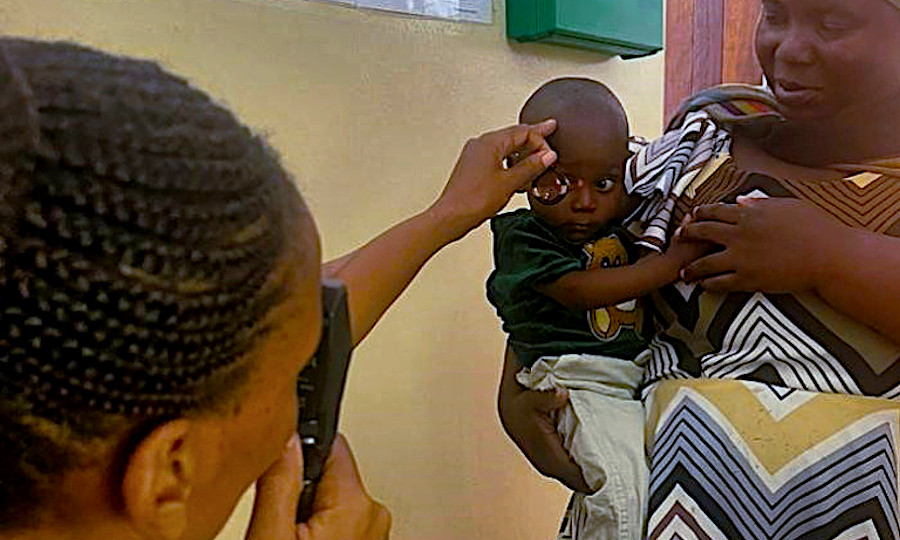Around 656.000 children and young people suffer from vision loss in Tanzania (source: IAPB). Timely screening and treatment at an early age are crucial as vision loss has an impact on the child’s development and their whole family. In 2023, Light for the World Tanzania launched its Early Detection programme as part of the Inclusive Vision programme. Through this initiative, we screen and examine eye diseases in children at an early age, ensuring they receive adequate treatment.
During the first five years of their life, Tanzanian newborn children usually attend Reproductive and Child Health Clinics (RCH) monthly. These clinics provide them with vaccinations and monitor their weight, height, and general nutritional status. However, their staff lacks the adequate knowledge to perform eye examinations right after birth and fails to detect eye problems at an early age.
Via the Early Detection programme, children up to 6 years are examined at maternity wards and RCH clinics. Depending on their eye problem, they are then referred to an eye unit for timely treatment. Later children with a visual impairment are integrated into our Itinerant Teaching programme for inclusive education. In addition, the Early Detection programme raises awareness of eyecare and eye diseases among communities.
In 2023 Light for the World launched a pilot project in the Morogoro region in Tanzania, which has around 3.2 million inhabitants. This project has been carried out in six district-councils: Morogoro Municipal, Morogoro Rural, Mvomero, Kilosa, Mlimba District Council and Gairo. It consists in the following steps:
- Meeting up with regional and district authorities: planning sustainable implementation, integrating the services into existing care systems, and reporting.
- Training and supervising staff at RCH clinics and labor wards to detect eye conditions in children. Training educators on low vision devices and the treatment of amblyopia. And raising awareness of parents on eye health during RCH clinic days.
- Providing the clinics with tools and equipment for early identification of eye diseases.
- Identifying children with eye problems, referring them and facilitating their transport to eye units at district or regional referral hospitals or specialized eye care facilities for medical treatment, and providing them with low vision devices, glasses and eye patches.
- Linking children with a visual impairment to the Itinerant Teaching programme for enrolment and regular follow-up.
- Monitoring the outcome of the identified children’s treatment.
Building upon the insights gained from this pilot project, our programme will be improved and extended to even more communities. Are you interested in supporting this beautiful initiative? Donate now and help us bring positive change in children’s lives.
